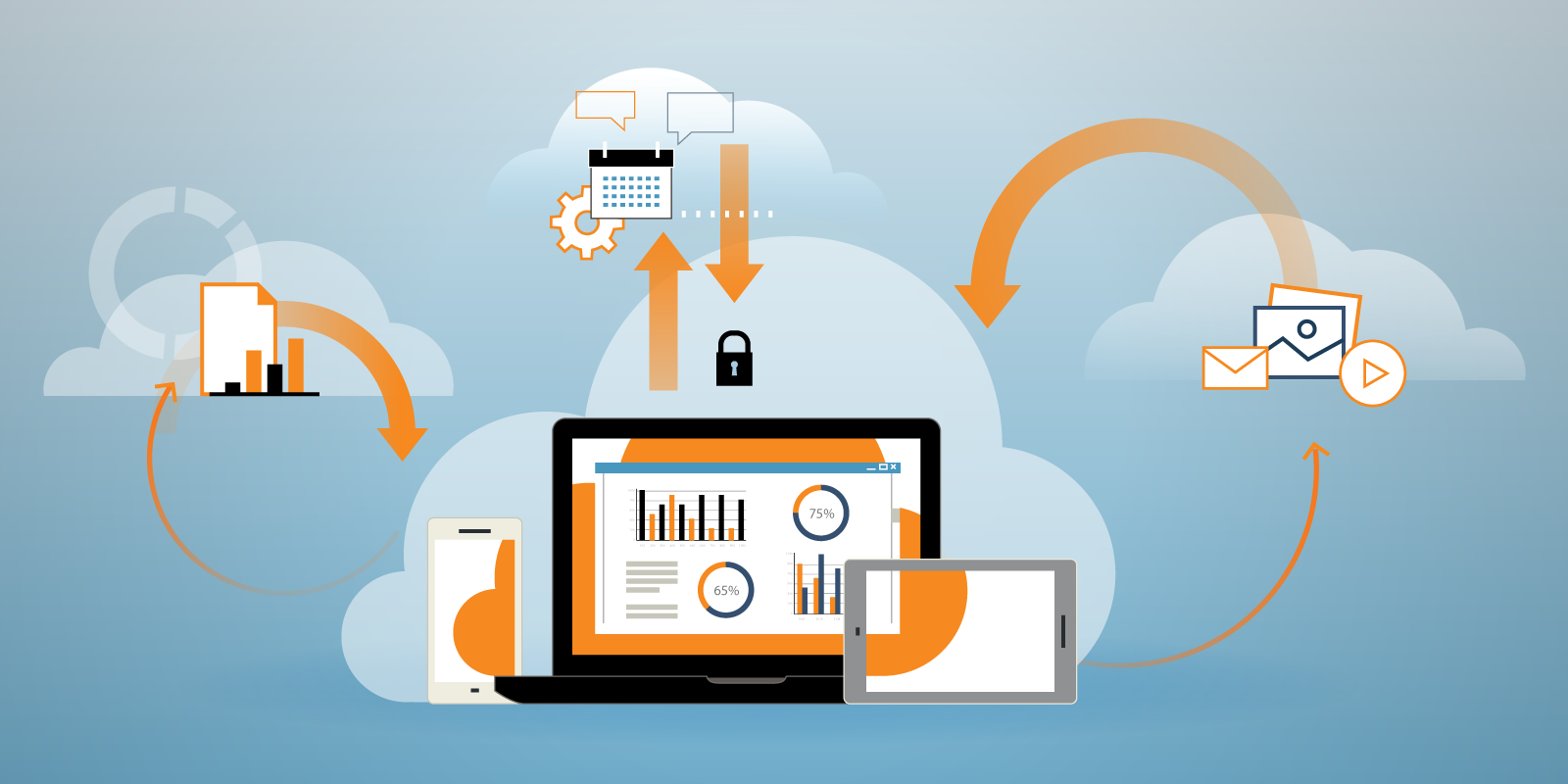Contact information.
-
Address"Ekzarh Yosif" street, 31, 1000 Sofia, Bulgaria
-
Phone:+359 2 980 95 99
-
Websitewww.balkanservices.com

Cloud technology refers to a method of accessing and storing data over the internet rather than on personal devices or traditional hard drives. It utilizes virtual servers linked to extensive data facilities, allowing individuals and businesses to access information and services without the necessity of physical infrastructure.
The term cloud has been widely used in our everyday life for years and it is used as a generalization for a wide range of services. There are a number of separate systems with different capabilities, advantages, disadvantages, and prices, which are publicly referred to as the cloud. Generalizing them all with a single term creates confusion and can lead to misunderstanding of the aspects and features of specific solutions.
In this context, it is important to distinguish between the different classes and options of cloud technology provision in order to make smart business decisions. In a series of articles in our blog, you can read more about what it actually means for a system to be truly cloud-based, the difference between public, private and hybrid cloud, and the key benefits of cloud technology.
But let’s start with the most important:
When we talk about the cloud, people most often think of atmospheric phenomenon. The most popular graphic images are of a small white cloud on a blue background. In fact, the term comes from the idea of a cloud of locusts. This curious clarification turns out to be quite important. The second analogy is more correct and can help us better understand the nature of cloud technology.
By definition, the cloud provides remote centralized computing power, via a network connection - i.e. the internet, to various end devices and therefore, to the clients that use them.
The concept is not new. In the past, this is how mainframes worked, providing computing power to end customers.
However, there are some differences:
The computing services themselves are performed not by one large machine, but by multiple servers gathered in data centers and operating as one large cluster (i.e., a cloud of locusts). In this way, all of their power can be used and distributed most optimally across multiple separate, parallel tasks, so that client requests can be satisfied quickly and qualitatively.
The number of servers can easily be increased, failed machines can be replaced, and none of these actions require shutting down the entire system.
In the past, the infrastructure for connecting end customers to the centralised system had to be built individually or using slow telephone lines via modems. Today, the connection infrastructure is the Internet.
Global, affordable, broadband, and extremely fast, the Internet allows customers to access cloud services from anywhere on the globe, at any time. The speed and ability to transmit large volumes of data make it possible to accomplish tasks that were unthinkable in the past.
Тhe end customers in the past have been computer terminals (e.g. keyboard and text display). Today the variety is huge: tablets, phones, mobile and stationary computers, e-books, watches, cars, TVs, even household appliances.
The possible applications are countless. Every day we discover new and new areas where cloud technology can change our daily lives and habits.
Businesses are also benefiting from cloud services. The main benefits of moving to cloud technologies are time optimization, using both human and machine potential in the most efficient way possible, and focus on business.
These types of services make it easier to take care of the information, and the commitment to store, backup, protect and multiply it in different data centers is entirely taken care of by the cloud service provider.
Among the main benefits of cloud technology is the elimination of the need to purchase, install, and maintain hardware in-house, hire specialized employees, and worry about ensuring the necessary conditions for the machines to function.
The cloud provides companies with greater flexibility, speed and freedom to make important business decisions.
With cloud technologies, companies can easily change the scope of services they use based on their needs at the time. This way they don’t have to make large initial investments that will define the boundaries of their business for the next 5 or 6 years.
Another important element is peak load. Every company has times when the need for computing power is very high (peak). In commerce, these are the days around Christmas, Easter, Black Friday, etc.
Such moments are extremely important for business, generate high turnover, give image and perspective. It is imperative that IT support in these situations is adequate.
If it has to provide the necessary hardware itself, the company should size it according to the peak loads. The investment is significant, but ultimately powerful hardware will be inactive 98% of the time.
Cloud technologies make it possible to allocate the necessary resources at the right time, with costs rising only for the peak load time and therefore being much lower in daily use.
Our team is here to listen carefully and offer the right solution for you.

One of the most discussed topics is information security in the cloud. At first glance, managers’ concerns are understandable: they don’t know exactly where their data is, who has access to it, or whether the data and network traffic are well protected from malicious access.
In fact, the truth is that the effort and resources being put in by cloud providers to protect, store and back up data is many times beyond the capabilities of a single company.
Data centers employ hundreds (sometimes thousands) of professionals whose primary concern is information security. All information security and privacy standards are covered, both at the data center level and at the information channel level.
Specialized encryption algorithms, firewalls, information synchronization in co-locations, backups and dozens more techniques are used to ensure information protection.
Such level of protection is inconceivable for an ordinary company. Even if we assume that the company works in the field of information technology, that it has the theoretical knowledge and could arrange such high-end protection of its own systems, it would still be extremely unprofitable from a financial point of view.
Gartner** forecasts that global spending on public cloud services will reach $679 billion in 2024 and exceed $1 trillion in 2027.
According to the same report, by 2028, more than 50% of companies will use cloud platforms to accelerate their business processes. By 2028, the cloud will become a necessity, not a choice. Cloud services will become a mandatory component to maintain business competitiveness.
Balkan Services has been supporting businesses on their digital transformation journey since 2006. We have already helped over 360 companies to digitize their business through the implementation of established software solutions and IT infrastructure management.
If you would like professional advice on your company’s IT infrastructure or choosing the right business software for you, our experienced consultants are here to assist.